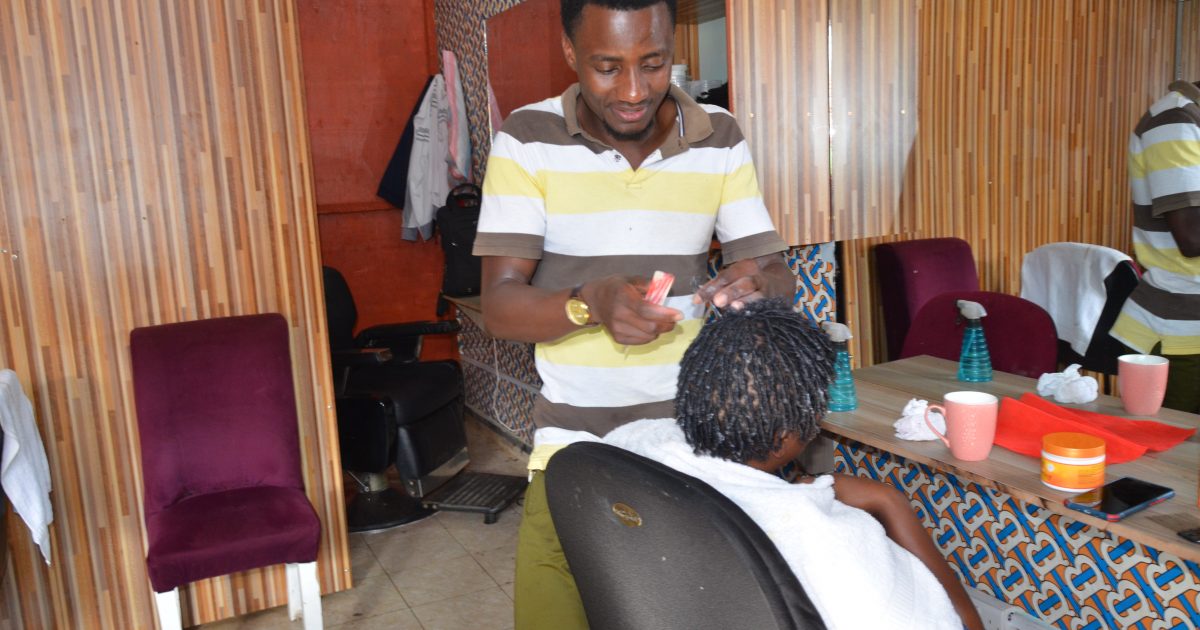A recent report by the Kenya National Bureau of Statistics (KNBS) put the number of graduates from tertiary institutions and universities joining the labour market annually at a staggering 800,000
And with 31 of the public universities in the country alone churning out more than 80,000 new graduates in a year, this figure could only take an alarming upward trajectory in the coming years.
In 2015 the World Bank put Kenya ahead of the pack in the East African region with the highest number of youths out of paid work.
In 2020, around 17.4 million people are reported to have been absorbed into the Kenyan labour market down from 18.1 million individuals in the previous year.
And with the private sector absorbing a total of 14.5 million people, it means there were only 2.9 million who were employed in the formal sector.
Indeed, even with the most ideal policies, the government and private sector can only absorb an insignificant number of all qualified graduates into their ranks leaving hundreds of others seeking alternative ways to fend for themselves.
And this is where Lutta Samir Mwimali found himself after he walked out of the gates of Dedan Kimathi University of Science and Technology in 2016.
Despite having graduated with a Bachelor of Purchasing and Supply Management, Mwimali at the tender age of 22 years, Mwimali decided to put aside his academic accolades and venture into the world of hair styling.
The now 29-year-old hairdresser told KNA he gained interest in weaving dreadlocks which is currently taking young people by storm while he was still on campus.
He later learnt to exploit this passion in attending to students’ needs to supplement the little financial help he got from his parents to make ends meet.
In his second year on campus, he decided to do a short course in hairdressing during one of the long vacations.
“I ventured into the dreadlocks business in 2014 after taking a short training course in hairdressing in Nairobi during my long vacation. By the time I was going back to campus, I had learnt all the hair-weaving skills that I needed,” he said.
Immediately after leaving college, Mwimali opened his first beauty parlour, Samir Locks, in 2016 when he was 22 years old.
Eventually, he decided to set up shop in Nyeri town after realizing there was a business gap in the specialty.
“Studying procurement helped me identify a business gap in dreadlock weaving. The discovery also helped me identify the risks involved in the trade and ways of dealing with my employees and clients,” he added.
With time and having a Sh200, 000 financial raised from his savings chest at his disposal, Mwimali later managed to extend his business tentacles to Nanyuki rebranding his budding enterprise to Haven Locks and Beauty Services. He later opened another branch in Nyeri.
And from its infancy as the only expert in weaving dreadlocks, he has today managed to engage a total of 22 employees in his three parlours.
“In 2020 and despite the Covid-19 outbreak and the subsequent lockdowns, I decided to take a risk by opening new beauty parlours in Nyeri and Nanyuki towns. The situation by then was very difficult due to health restrictions that the Government had imposed to contain the pandemic from spreading but we managed to stay afloat, somehow,” Mwimali told KNA.
However, before anyone is employed in his hair salon shops, potential candidates must undergo a short training course at his premises.
Such courses are charged at Sh5, 000 monthly after which successful candidates are afterward absorbed to work full time.
On average, the hairstylist attends to at least 60 clients on a busy day though this number at times may drop to as low as 20 depending on the time of the month.
The end month is particularly busy owing to the fact that the majority of people who are in paid-up employment usually receive their wages around that time.
Clients are charged between from Sh500 to Sh5, 000 to have their hair done depending on the quality of dreadlocks and hairstyle they prefer.
When we inquired as to why there has been a steady shift from conservative hairdos to dreadlocks, Mwimali attributes the paradigm shift to society’s desire to embrace their African cultural identity.
But this argument is contestable if history is anything to go by. While it is true that Africans contributed much as far as the evolution of dreadlocks is concerned, including among Mau Mau fighters like Field Marshall Dedan Kimathi and General Baimunge Marete, historical scholars trace the roots of the art to ancient Egypt.
Excavations from ancient pyramids in the Valley of the Kings reveal that a number of ancient Egyptian mummies wore dreadlock wigs from as early as 1400 BCE.
Such findings have been cited in arguments that dreadlocks did actually originate in ancient Egypt though some scholars include Greeks and Indians among civilizations that had developed the art of weaving hair locks.
“Many people have shifted to dreadlocks as a way of appreciating the African look. Compared to other hairstyles, dreadlocks are faster to plait, cheaper to maintain, and also less time-consuming,” he explains.
Notwithstanding the apparent success, Mwimali says the dreadlocks business is now turning into a cut-throat venture with dozens of beauty shops dealing with hair locks coming up in quick succession.
There is also the belief that dreadlocks are synonymous with ‘rebellion’ and revolutionary ideals as expounded by the late Jamaican Reggae maestro Bob Nester Marley in his all-time great Uprising album.
Be it as it may, the former graduate remains undaunted in his quest to popularize the trendy hairstyle and also eke a living in the midst of a crunching global economic crisis.
Perhaps his commitment to keeping his dream alive could also be appreciated for his sacrifice in accommodating more youths in his three salons.
He nevertheless advises young people to try their hands at manual jobs instead of chasing after nonexistent white-collar jobs that end up leaving the majority of them frustrated.
“Young people should not sit back and expect to get the jobs that they want to do. They need to come out of their comfort zones and go out there and find what they can do with their hands to earn a decent living. As for me, I hope to continue expanding my business empire into the next decade and if need be, open up employment opportunities to other young people,” concludes Mwimali.
By Samuel Maina and Rodah Ndirangu





